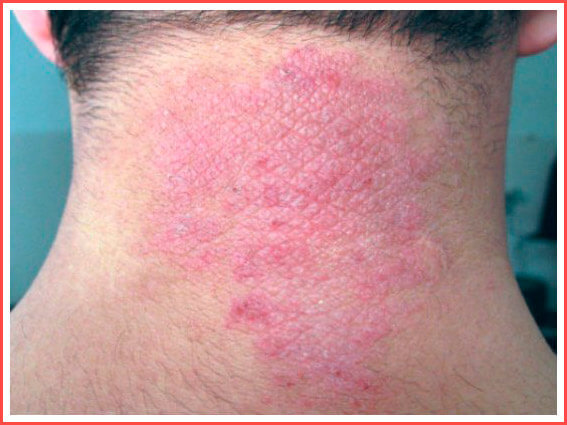
Even ancient doctors noted a special place of the mental component in the origin of skin diseases. Hippocrates, formulating his idea of the nature of the human essence in the form of four fundamental character traits, noted uniform forming mechanisms for skin diseases.
At the end of the XVIII century W. Falkoner was the first to make an attempt to link the activity of the skin process with a violation of the innervation of the affected skin areas, setting a psychosomatic approach in dermatology. In 1933, the German dermatologist W. Sack, in his work Mind and Skin, first suggested taking the state of the skin as one of the indicators of the state of the individual's psyche. The American psychoanalyst Franz Alexander in 1968 proved that the skin has the property of a specific organ predisposition to respond to stress, and therefore the pathological skin process includes not only a local focus, but also the mind of the patient.
Stress is the main cause of psychogenic dermatoses and dermatitis in many people. Often patients talk about a "vicious circle": stress leads to itching and aggravates the disease, which causes even more tension. In addition to the time dependence between the impact of emotional stress and manifestations of skin pathology, there is often a clear parallelism between the severity, prevalence, activity of the course, the duration of the disease and the intensity of psychoemotional disorders. The same pathological processes that manifest themselves at the neuropsychic level as irritability, fatigue, a tendency to depression, anxiety, etc., manifest themselves as rashes at the skin level.
Neurodermatitis (atypical dermatitis) is one of the most common psychosomatic diseases that affects 1-1.5% of the population, mostly women. The disease is manifested by severe itching with a predominant lesion of the face, neck, joints of the arms and legs, areas of the elbows, knees, hands and feet. It has a persistent, chronic and recurrent course, which is often accompanied by neurotic disorders, a decrease or loss of ability to work, social maladjustment and a deterioration in the quality of life of patients.
Psoriasis is a non-infectious, chronic autoimmune, inflammatory disease, the essence of which is the excessive division of skin cells, which is manifested by severe peeling, redness of the skin and itching. The disease can affect large areas of the skin, up to a total lesion, is difficult to treat and causes severe discomfort to the patient. The skin with psoriasis itches and becomes covered with scales.
Eczema (atopic dermatitis) is characterized by patches of dry skin that can become itchy, red, and inflamed. These patches often appear in the creases of the elbows and knees, as well as on the face, neck, and wrists. Scratching in such areas can increase itching and cause the skin to ooze a clear fluid.
The onset of diseases is often associated with conflicts in partnerships, relationships with the mother, separation, or, conversely, the appearance of people who are more emotionally attractive to patients, etc. An important factor, especially with itching dermatoses accompanied by self-combing, is the suppression of aggressive and sexual tendencies when it is impossible to independently control one's own emotional aspirations. Scratching with such dermatitis is an unconscious way to cope with aggression. At the same time, combing is not always explained by the presence of itching, but becomes a kind of motor discharge of emotional stress.
Patients with dermatitis and dermatosis often experience suppressed impulses of hostility towards their families, feelings of inadequacy, depression, nervousness and anxiety, and the patients themselves usually notice the negative impact of their feelings and experiences on the condition of their skin.
The skin can be considered as a covering layer that performs a protective function. It perceives incoming external and internal stimuli and, if necessary, transforms or reflects them, and therefore can take on a certain symbolic meaning: on the one hand, it protects a person from external influences and factors, and on the other hand, it serves as a means of contact and communication. As a result, if the patient’s relationship with his own boundaries is violated, either dependence on other people, attachment to them and the desire for subordination arise, or rather rigid, impenetrable boundaries are formed that prevent deep contact with the external environment and significant people. In both cases, the development of the disease can begin at the somatic level.
In particular, there is an opinion that the “scales” on the skin in psoriasis are a protective reaction of the body to an uncomfortable external environment, protection of a person with low self-esteem and fear of social contacts. Therefore, people who are prone to social phobia (fear of people) often suffer from psoriasis.
That is why psychotherapy must necessarily be included in the treatment of dermatoses and dermatitis.
A good non-drug treatment is also transcranial electrical brain stimulation (TES). It is widely used to relieve pain of various origins due to its analgesic effect, and also has a positive effect on the processes of reparation and an increase in the psychophysiological status of a person, reduces anxiety and depression.
A promising treatment for inflammation and psycho-emotional imbalance associated with skin diseases is infusion treatment with ketamine. Guided by the principles of integrative, holistic medicine, combining psychotherapy with ketamine infusions, transcranial electrical stimulation, rehabilitation of the brain "Neurohelp", body-oriented therapy and art therapy, a significant improvement in the health of patients can be achieved.
Causes of psychosomatic illnesses
